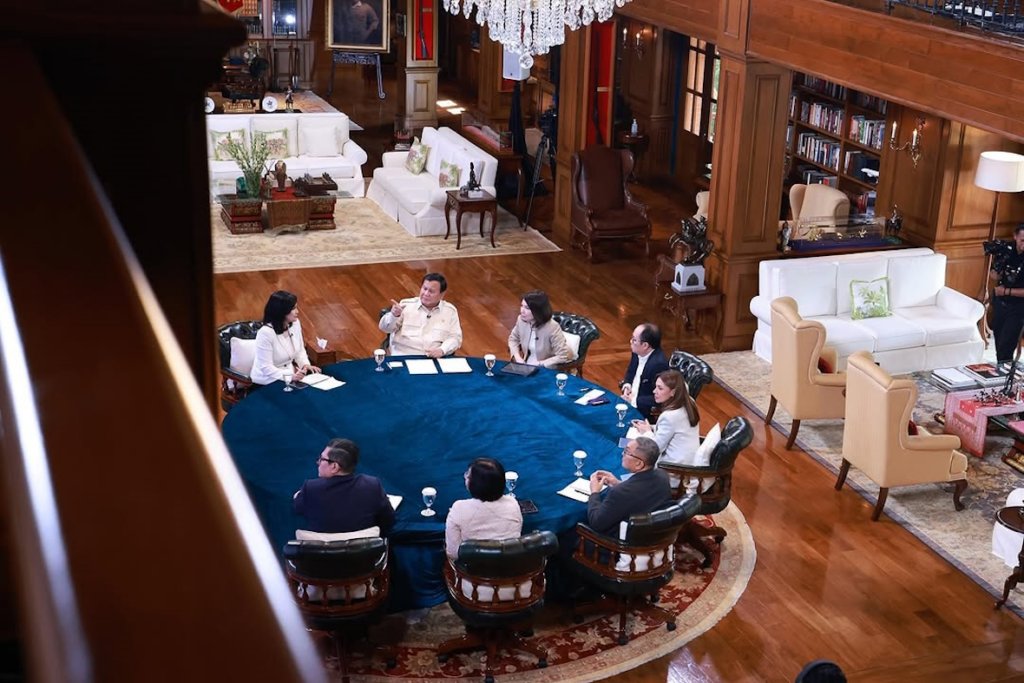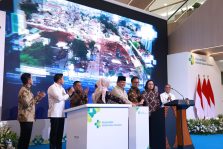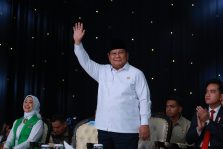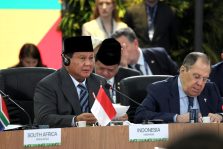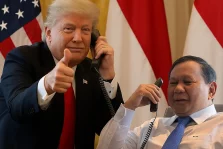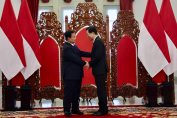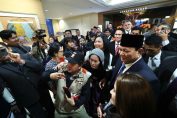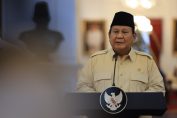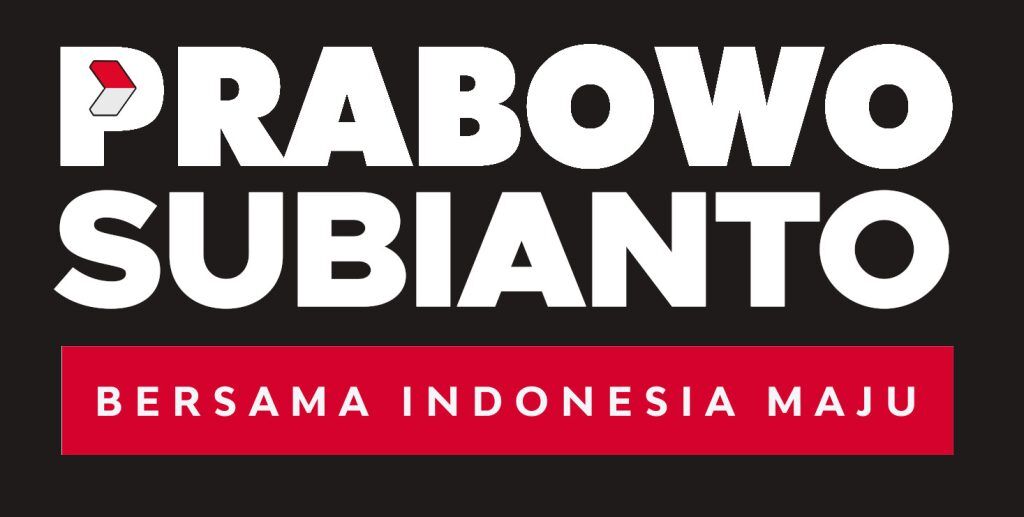Yesterday, President Prabowo invited seven senior journalists for an on-the-record conversation at his private library. Present were editors-in-chief from TV One, IDN Times, Narasi, Trans Group, TVRI, and SCTV.
The nearly four-hour discussion—which will air today at 7:00 PM on Detik, IDN Times, and TVRI, and at 4:30 PM on SCTV—covered dozens of topics, including the economy.
Below are the highlights of the President’s seven key responses on the current state of Indonesia’s economy:
1. Are you confident the 8% growth target is achievable amid forecasts of a global economic slowdown?
A large portion of Indonesia’s GDP comes from household consumption. We have the advantage of a large population, yet the majority still has limited purchasing power.
Our top priority is to boost that purchasing power. For instance, the Free Nutritious Meals (MBG) program supports purchasing power by reducing parents’ financial burden, while also creating three million new jobs and absorbing produce from local farmers, fishers, and breeders. That’s why hundreds of countries are now adopting similar programs.
Our Free Health Check program also supports purchasing power by enabling early detection of health issues—preventing costly medical expenses.
Likewise, our Three Million Homes initiative eases the burden on those needing renovations or housing, while creating millions of new jobs.
The establishment of BPI Danantara aims to increase purchasing power by generating quality employment—especially in downstream industries built on our key natural resources.
This is our strategy. I believe it’s the right one. With strong execution, I am confident we can reach or even exceed 8% growth. Execution is now the key.
2. What’s your take on the recent dip in the Indonesian stock index (IHSG)?
The stock market allows capital to move in and out quickly. What we saw recently was mostly short-term profit-taking—investors reallocating to better short-term instruments at home or abroad. That’s why the IHSG may drop or rise. We saw capital outflow in the stock market, but inflow in government bonds (SBN).
What matters most to me is the level of foreign direct investment (FDI)—which reflects long-term capital. Long-term investments require high levels of trust, and our FDI continues to rise.
Also, when stock prices fall, it means they’re cheap. That’s the time for state-owned enterprises (SOEs) to buy back shares—and we’ve done that. After the dip, the market rebounded. But I noticed that rebound didn’t get much media coverage.
3. Does the cut in Public Works spending mean infrastructure is no longer a government priority?
We must admit government-led infrastructure projects could be run more efficiently. I want infrastructure development to continue—but primarily through the private sector, not the government or SOEs.
I’m aware that in the past, tenders were sometimes announced at the last minute and remained open only for a few hours—effectively limiting participation to a select few. While that may be legally sound, we know the outcomes. I don’t want that to happen again.
With private sector involvement, the risk of inflated project values or backdoor deals is smaller compared to government or SOE projects. Fully private infrastructure ventures are also less prone to manipulation.
4. What is your response to President Trump’s tariff policy and U.S. Commerce Department criticism of Indonesia’s foreign exchange retention (DHE) policy?
Tariffs will hurt labor-intensive exports like textiles and footwear. That’s why we must negotiate—both as a nation and as part of a regional bloc. This evening, I’m heading to Kuala Lumpur to coordinate ASEAN’s response with Prime Minister Anwar. We’ve also sent our Coordinating Minister for the Economy to the U.S. for direct talks.
We respect America’s policies. We are friends with America. Regarding DHE, there may be some misunderstanding. We require export proceeds (DHE) to remain in Indonesia only for companies that benefit from government facilities—such as loans from state-owned banks.
If a business operates in Indonesia using its own capital or brings in its own funds from abroad, we don’t regulate its DHE. I believe that’s a fair approach.
Ultimately, we must stand on our own feet. I’ve said this for years. That’s why we now have Danantara—to support funding for our strategic projects.
5. Why is former Thai Prime Minister Thaksin on Danantara’s Advisory Board?
PM Thaksin has long been a friend to Indonesia and brings a wealth of experience.
Like other global advisors to Danantara—such as Jeffrey Sachs and Ray Dalio—PM Thaksin has agreed to serve pro bono, without compensation, aside from occasional travel expenses to Indonesia.
I’m aware PM Thaksin was once ousted by the Thai military. I have no interest in commenting on Thailand’s domestic politics, but that’s the tough reality of Thai politics. In truth, he was a successful leader.
6. Are you confident third-party investors will join Danantara projects?
As President, I’ve emphasized to Danantara’s leadership the importance of thorough feasibility studies for every investment opportunity. Danantara must prioritize high-impact, high-value projects.
To ensure that, Danantara is under strict oversight—its investment decisions must benefit the Indonesian people. All Danantara projects must be sustainable and create significant added value. If we do that, it will naturally attract more investors.
7. Aren’t you concerned that budget reallocations could slow short-term economic growth?
Too much of our national budget (APBN) doesn’t directly benefit the people. In my first month in office, I cut most of the travel budgets for officials going abroad—saving around IDR 47 trillion. Imagine how many schools we could renovate with that.
Since then, as you know, we’ve trimmed costs for office supplies, printing, souvenirs, anniversary events, seminars, and more. We’ve saved IDR 250 trillion.
To be honest, I used to feel uneasy attending all those ministry anniversaries and institutional celebrations—ceremonial events with little real impact.
Now, I’m pleased to see that such events are held modestly—often marked internally with nothing more than a simple cake-cutting.
I understand that, in the short term, reduced government spending may lower economic activity. But in the long run, reallocating those funds to more productive uses will yield far greater impact.

